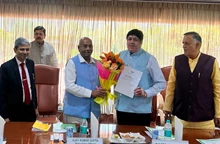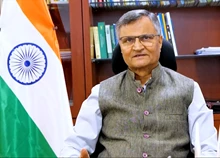
The framework for the growth of drone services in India has been created by the Civil Aviation Ministry's announcement of new regulations for drone operation in India. Unmanned aerial vehicles (UAVs), sometimes known as drones, are aircraft that are remotely piloted and do not have a human pilot present.
But you need a drone pilot license to fly the bigger ones. You should be aware of the drone categories in India before continuing because the license is based on them. Five categories of drones are:
Nano: Drones are less than or equal to 250 gm
Micro: Drones are less than 250 gm and less than or equal to 2 kg
Small: Drones are more than 2 kg, and less than or equal to 25 kg
Medium: Drones are more than 25 kg and less than or equal to 150 kg
Large: Drones are more than 150 kg
How to Get a Drone Pilot Licence?
Operating nano- and micro-drones for personal, non-commercial usage does not require a pilot's license. But in order to use any other kind of drone — or any of these categories — for commercial purposes, you must apply for a permit and undergo training at a facility approved by the Directorate General of Civil Aviation (DGCA). All drone training and exams will be conducted in accordance with the announced rules by an approved drone school. The DGCA will set training standards, regulate drone schools, and issue online pilot licenses.
However, you do not need to purchase a drone in order to join a drone training course. The training center offers drones and training materials.
Student Remote Pilot Licence: A student license can be renewed for a further two years and is good for a maximum of five years.
Remote Pilot Licence: These are given out by the DGCA in exchange for a training certificate and a skill test report from an approved training facility. With each application for renewal, a remote pilot license's initial 10-year term may be extended by an additional 10-year period.
What are the eligibility criteria for becoming a drone pilot?
In order to enroll in any training institute, you must be 18 years old and hold a 10th-grade pass certificate. You also must pass a medical examination as required by the DGCA and a background investigation by the relevant government body. The age requirement to obtain a remote pilot license for business purposes is 65 years old.
What is the fee charged for the pilot training course?
Depending on the course type, the cost varies. Depending on the type of course and the institute, course fees might range from Rs 30,000 to almost Rs 1 lakh.
What are the skills required to become a drone pilot?
Even though the only requirement is a passing mark in your tenth grade, you should make an effort to understand the fundamentals of flying, such as avionics, weather, wind speed, and other mechanics.
Drone operations are fast growing in a variety of industries, and each industry has its own unique needs. For instance, industries including filmmaking, geospatial sensing, construction, mining, real estate, agriculture, transportation, energy, and telecommunications all need drone pilots. Therefore, having an in-depth understanding of the relevant field is necessary to operate a drone successfully.











